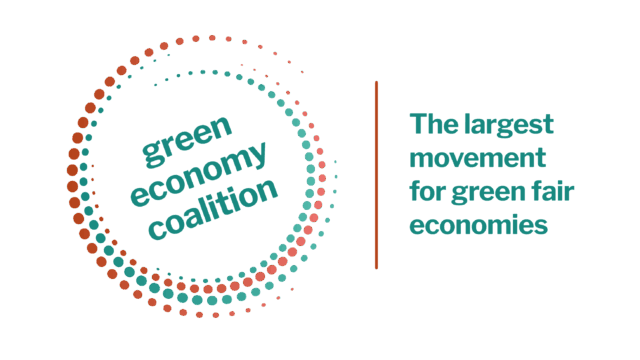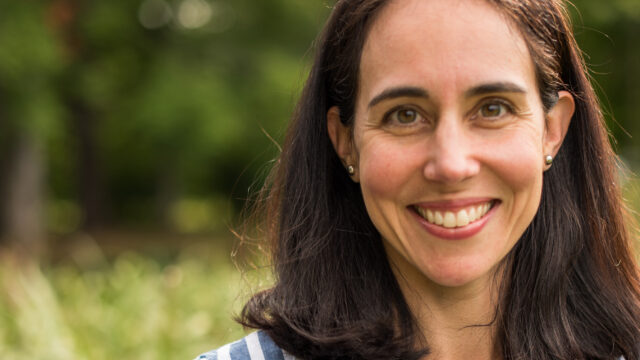Telling better stories to inspire a green future
The stories we tell shape how we view the world and what we think is possible. So to change the future, we need to change our narratives

As a climate activist and sustainability academic, I worry that a lot of climate coverage – be that in the news or on social media – is essentially preaching to the converted. So in 2018, I set up the Green Stories project. The goal is to use fiction to engage those who might never choose to watch a climate change documentary, or read about IPCC negotiations online –people who miss out on probably 90% of the climate communications in our saturated media landscape.
Over the past five years we’ve run 17 free writing competitions, encouraging participants to explore key climate solutions and embed them in stories aimed at the mainstream. I wrote an eco-themed rom-com myself - Habitat Man in 2021 - and research indicates that out of 50 readers, 98% adopted at least one green alternative as a result of reading the book – a rewarding confirmation of the potential of fiction to catalyse change.
At a session at COP27 with speculative fiction writer Andrew Dana Hudson on how fiction can help save the climate, I may have accidentally coined a term: ‘social-science fiction’. Just as science fiction helps us to imagine the pros and cons of new technologies, social-science fiction can help us imagine how transformative systemic solutions, such as personal carbon trading or switching from GDP to a well-being index, might look in practice. Another emerging term is ‘thrutopia’ which captures a similar idea – that is, stories that don’t posit far off dystopias or utopias, but explore the process of transition: how do we get from where we are now, to where we’d like to be?
For example, an essential step is to upgrade our democracy so leaders and governments are incentivised to think beyond short-term electoral cycles to enable them to make more sustainable decisions. Citizens’ Assemblies are a positive step here, and my most recent story ‘The Assassin’ is a fun whodunit, set in a citizens’ jury, where eight participants, one of which is an assassin, meet to deliberate upon climate solutions. The biggest barrier to citizens’ assemblies being taken up more widely and given full legislative authority (a House of Citizens to replace the House of Lords perhaps?) is lack of public awareness. We’re adapting this as an interactive play, ‘Murder in the Citizens’ Jury,’ which aims to address this.
A recent Green Stories project teamed some of the biggest names in speculative and science fiction – including Kim Stanley Robinson and Paulo Bacigalupi - together with climate experts to co-create an anthology of 24 stories: No More Fairy Tales: Stories to Save Our Planet. This was shared around COP27, making the Top of the COPs newsletter. Each story showcases transformative climate solutions and readers inspired towards change can explore how to help make them happen by following links to the accompanying website.
“ There are numerous ‘cli-fi’ stories that present dystopian visions of what will happen if we don’t act. But there are few which get us nearer to understanding what the really effective solutions are and, even more importantly, how we might bring them about.”
This anthology fills an important gap. There are numerous ‘cli-fi’ stories that present dystopian visions of what will happen if we don’t act. These can be problematic; fiction that paints a dark and depressing future may cause readers to respond with denial, despair, or even fear-driven ‘prepping’ responses (buying up all the toilet rolls!) – none of which is helpful, or even healthy.
There are also numerous eco-fiction stories that seek to inspire us to love nature, plant trees and care for our fellow creatures – Richard Powers’ The Overstory springs to mind. But there are few which get us nearer to understanding what the really effective solutions are and, even more importantly, how we might bring them about.
This is a gap that I haven’t seen any fiction (other than Kim Stanley Robinson’s Ministry for the Future) fulfil. No More Fairy Tales: Stories to Save Our Planet uses fiction as a safe space to explore the more radical ideas necessary for a truly sustainable society – ideas that are hard for politicians to talk about, because they are complex and contested.

An example might be personal carbon trading, considered seriously around 2007, but which was an idea ahead of its time. This proposes that everyone has a personal carbon allowance, so just like managing a financial budget, we’d live within a carbon budget. Our transactions, journeys and purchases would use up our carbon allowance. It is an equitable solution, as those who go over their allowance can purchase extra carbon credits from those who have spare carbon credits. It would also be effective, rewarding green behaviour.
Individuals would choose products and services with a lower carbon footprint, or prefer to borrow, repair or re-use rather than new. This would incentivise companies to provide greener products and services, for example by sourcing their energy from renewable sources, designing green products, making it easier to borrow rather than buy or providing easy repair options.
This is just one of many ideas covered in No More Fairy Tales: Stories to Save Our Planet. Others range from technical solutions relating to carbon dioxide removal projects to more systemic aspects, such as switching from GDP to a well-being index. We have already made some headway: we’ve had interest from leaders at the World Ocean Summit who were inspired by a story that proposed giving nation status to the ocean. They suggested scheduling a session to discuss at the next ocean summit.
Whichever term is preferred – “thrutopia” or “social-science fiction”, I’m excited to see that we are finally telling climate stories that can provide an engaging and entertaining blueprint for action. If you want to learn more, check out the Green Stories project.
Finally, every climate article should end with calls to action, so here goes:
- Campaign for Citizens’ Assemblies to be given more power here.
- Check out books published from the Green Stories project here. If you like them, please leave a review, it really helps.
- Share details of our upcoming free green stories competitions.
- If you like the idea of using drama to engage the public in climate solutions, learn more here and get in touch: D.A.Baden@soton.ac.uk; @DABadenauthor.
- Share details of the project we’re working on with Bafta, and Albert that raises awareness of the role of fictional characters in the climate crisis.
- Denise Baden is Professor of Sustainable Business within Southampton Business School (SBS) at the University of Southampton and co-founder of the Green Stories project.


